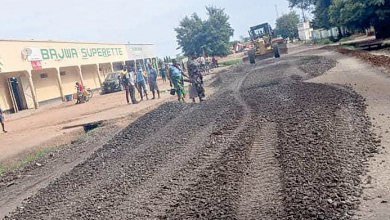NSO set for statistical systems modernisation
The National Statistical Office of Malawi (NSO) is set to modernise its statistical production systems to reduce the ever-rising costs of conducting household surveys and improve efficiency.
Commissioner of Statistics Shelton Kanyanda said in an interview, the office would start leaning more towards organising administrative records and turning them into official statistics.
NSO has developed a new strategic plan and one of the key areas it is focusing on, as part of modernising the process, is the use of technology in the collection and analysis of the data.

Kanyanda said a number of stakeholders have been involved to align them to the new system. The new strategic plan is set for launch next month.
“So most of our surveys now have moved away from paper-based data collection to digital where we use tablets and other sources including web-scrapping to extract data,” said the commissioner.
Through the National Statistical System (NSS), NSO also wants to strengthen coordination among the country’s data providers, producers and users in order to produce official statistics.
Scotland-based Malawian economist Velli Nyirongo in a written interview observed that the modernisation of the statistical systems present a significant opportunity to reduce both initial and long-term costs.
According to Nyirongo, with digital tools, NSO will eliminate expenses associated with printing, postage, and manual data entry processes that are not only costly but also time-consuming.
He said: “Making changes to survey instruments becomes more efficient, as updates can be implemented quickly without the need for reprinting. This transition is especially vital for a country like Malawi, where financial and logistical resources for statistical activities are often limited.”
Nyirongo said in addition to digitisation, greater use of administrative data offers a promising path forward as records collected for operational purposes such as tax, health, or social security data can be repurposed for statistical analysis at a relatively low cost.
However, Nyirongo said the shift is not without challenges as administrative data is typically not collected with statistical use in mind, raising concerns about definitions, consistency, and overall quality.
“Despite these obstacles, the direction NSO is taking aligns with international best practices promoted by bodies such as the UNECE [United Nations Economic Commission for Europe] and OECD [Organisation for Economic Co-operation and Development].
The two institutions highlight the importance of digital transformation, use of alternative data sources, and the strengthening of organisational and human resource capacities.





